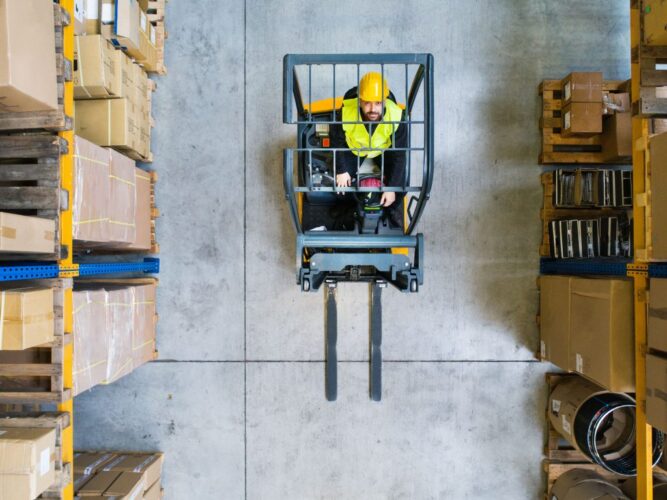Forklift batteries require proper maintenance to maximize their service quality and life. With proper maintenance, forklift batteries can last up to five years before needing to be replaced depending on the charge and usage frequency. That averages about 2,000 charge cycles, which can save you a lot of time and money on battery or forklift replacements. Scheduling routine maintenance and performance checks will help you keep track of the functionality of your material handling equipment and is a key factor in protecting your investment.
Continue reading to learn about some useful industry-standard forklift battery maintenance tips to help extend the lifespan and performance of your material handling equipment.
Tips for Effective Forklift Battery Maintenance
Taking good care of your material handling equipment ensures its longevity and reduces the need for part replacements and repairs. Forklift batteries require a specific type of routine maintenance to enhance and maximize their performance levels. When it comes to providing service for forklift batteries, material handling equipment experts recommend performing the following functions on a regular basis.
Proper Battery Watering
It’s important to maintain proper water levels in your forklift battery. Excessive moisture loss leads to battery oxidation and results in significantly decreased charge capacity, sustainability, and battery life.
Depending on usage frequency, make sure to schedule weekly or bi-weekly forklift battery watering. Avoid overfilling the water in the battery as this can cause it to leak and damage your equipment. Only use pure, deionized distilled water. Batteries contain electrolytes that expand when exposed to water. This can lead to overflowing if too much water is added. To prevent electrolyte expansion, only add water after completing a charge cycle and fill the water halfway.
Perform an Equalization Charge
Forklift batteries typically need about eight hours to charge. With continued use over time, however, some battery cells can lose their ability to hold a full charge while others retain the same amount of power. This imbalanced charging capacity can reduce the efficiency and functionality of your forklift battery.
The solution is to perform an equalization charge. This extends the regular charging time by an additional three hours. During that time, the charging power is reduced but continues to charge the remaining depleted battery cells at a slower pace until they reach their full charging capacity as opposed to a shallow or inadequate charge. This will enhance the performance of your forklift’s battery.
Wash the Battery Case
Lastly, it’s important to clean your battery case regularly. Neglecting to clean your forklift’s battery case can lead to residual acid buildup. Acid residue creates a conductive circuit that acts as a barrier between the lead posts and steel siding of the case, causing a slight discharge. This overworks the battery and leads to accelerated wear and tear. Corrosion can also result from extensive acid residue inside the battery case and this can cause a short circuit in your forklift, which reduces the battery’s charging capacity.
To avoid these problems, close the vent caps tightly and clean your battery with an acid-neutralizing de-greasing agent. Depending on the frequency of use, you should be doing this at least once a month.
Forklift Maintenance Services in the GTA
NovaLift Equipment Inc. is one of the leading providers of new and used material handling equipment in the GTA. We provide extensive forklift maintenance and repair services in Vaughan, Woodbridge, and Concord. We specialize in forklift sales, service, and rentals of all makes and models of forklifts and industrial cleaning equipment. Contact us today to learn more.


